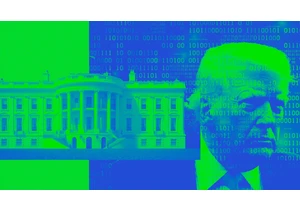The first legally binding international AI treaty will be open for signing on Thursday by the countries that negotiated it, including European Union members, the United States, and Britain, the Council of Europe human rights organization said.
The AI Convention, which has been in the works for years and was adopted in May after discussions between 57 countries, addresses the risks AI may pose, while promoting responsible innovation.
“This Convention is a major step to ensuring that these new technologies can be harnessed without eroding our oldest values, like human rights and the rule of law,” Britain’s justice minister, Shabana Mahmood, said in a statement.
The AI Convention mainly focuses on the protection of human rights of people affected by AI systems and is separate from the EU AI Act, which entered into force last month.
The EU’s AI Act entails comprehensive regulations on the development, deployment, and use of AI systems within the EU internal market.
The Council of Europe, founded in 1949, is an international organization distinct from the EU with a mandate to safeguard human rights; 46 countries are members, including all the 27 EU member states.
An ad hoc committee in 2019 started examining the feasibility of an AI framework convention and a Committee on Artificial Intelligence was formed in 2022, which drafted and negotiated the text.
The signatories can choose to adopt or maintain legislative, administrative, or other measures to give effect to the provisions.
Francesca Fanucci, a legal expert at ECNL (European Center for Not-for-Profit Law Stichting) who contributed to the treaty’s drafting process alongside other civil society groups, told Reuters the agreement had been “watered down” into a broad set of principles.
“The formulation of principles and obligations in this convention is so overbroad and fraught with caveats that it raises serious questions about their legal certainty and effective enforceability,” she said.
Fanucci highlighted exemptions on AI systems used for national security purposes, and limited scrutiny of private companies versus the public sector, as flaws. “This double standard is disappointing,” she added.
The U.K. government said it would work with regulators, the devolved administrations, and local authorities to ensure it can appropriately implement its new requirements.
(This story has been corrected to fix the number of Council of Europe member countries to 46, not 47, in paragraph 6)
—Rishabh Jaiswal, Supantha Mukherjee, and Martin Coulter, Reuters
Ak chcete pridať komentár, prihláste sa
Ostatné príspevky v tejto skupine

Welcome to AI Decoded, Fast Company’s weekly newsletter that breaks down the most important news in

The data nerds are fighting back.
After watching data sets be altered or d

Chris Guillebeau spent years racing against time, visiting all 193 countries before he turned 35, hosting annual gatherings of thousands, and writing bestsellers like The $100 Startup. Bu

As my family settles into a whole new city and community, I’ve been eagerly exploring a variety of sites and services for discovering new gems and getting to know our area. And while our recent cr


If you can’t afford a lawyer, it turns out there’s nothing stopping you from sending a scary-looking letter that, at first glance, seems to come from one—and hoping the recipient doesn’t read the

